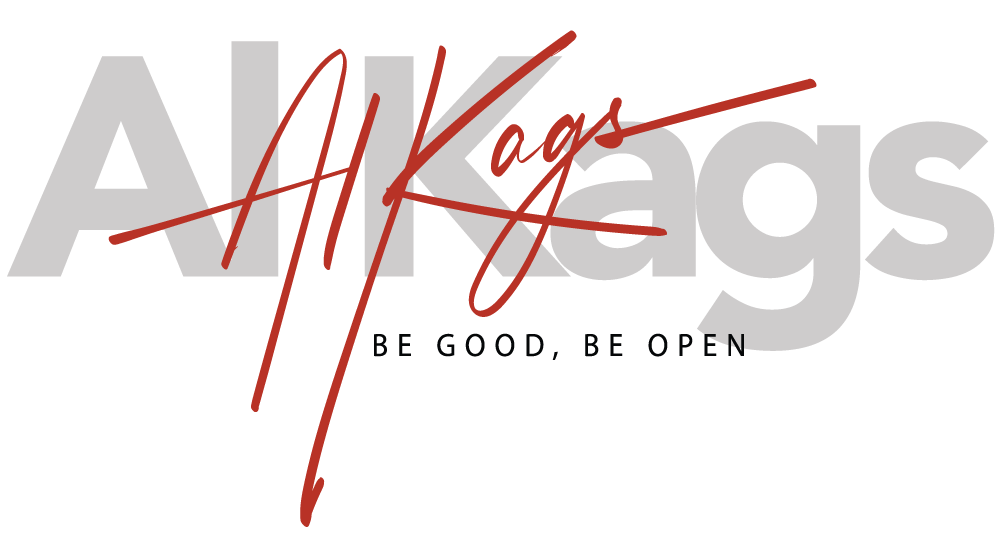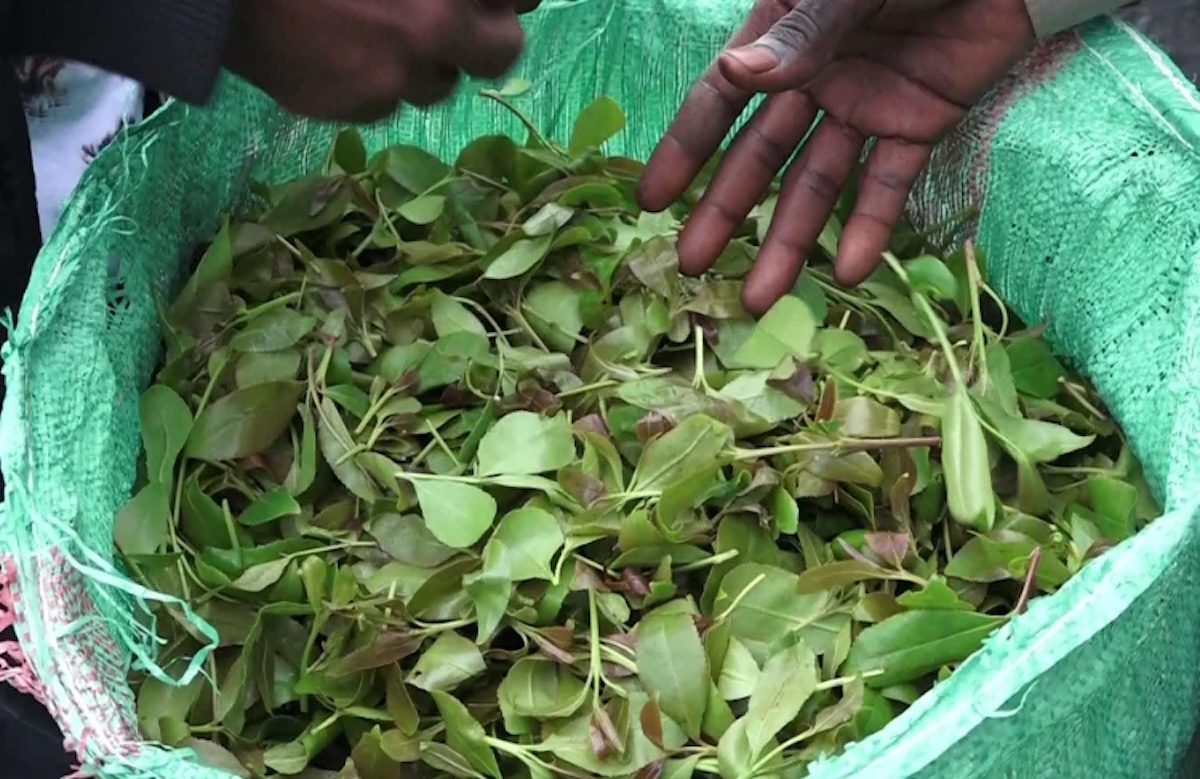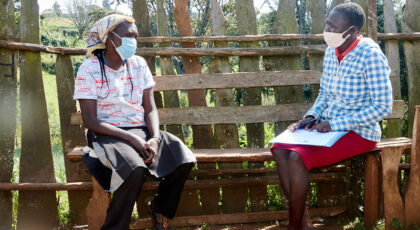The struggle to ban muguka in Kenya’s coastal counties is more than a public health issue. It is a pivotal moment for understanding and applying devolution in Kenya. Sparking this battle is Zeinab Zahor, a courageous woman whose journey from potential child bride to community leader has sparked significant legal and social debates.
The Roots of the Conflict
In her documentary Story za Jaba, Zeinab (left) highlighted the devastating effects of muguka, a potent variant of khat, on her community in Malindi. The film, based on interviews with 24 women, exposed how muguka addiction led to economic hardship and social disintegration.
“Muguka brings people together here. Every afternoon through to the night, they sit together, each with a black paper bag, chewing gum and an energy drink, chewing time away. Muguka is the number one priority – the motivation. It comes before bills, health, school fees, and even meals,” Zeinab explained.
The documentary resonated deeply, leading to public outcry and demands for a ban. Responding to this pressure, the governors of Kilifi, Mombasa, and Taita Taveta enacted bans on muguka. However, this decision clashed with the national classification of muguka as a legal crop under the Crops Act 2013, prompting a legal battle that brought the issue before the High Court.
Constitutional Context
The Constitution of Kenya, 2010, decentralises power to county governments to address regional disparities and empower local governance. According to Article 186 and the Fourth Schedule, counties have the authority to manage health services and local trade. Article 185 (2) grants county assemblies the authority to make laws necessary for their functions. However, Article 191 states that national legislation prevails if it applies uniformly across the country and is necessary for national policy or economic unity.
This constitutional framework sets the stage for the current conflict: Can county governments enact regulations that contradict national laws if they address localised health and safety concerns?
Judicial Clarification Needed
The High Court’s suspension of the muguka ban highlights the tension between local autonomy and national legislation. The judiciary’s role is crucial in defining the scope of devolved powers and balancing local public health needs with national economic policies. Judicial interpretation will:
- Clarify Devolved Powers: Determine if counties can regulate local issues like public health, even if it means contradicting national laws.
- Balance Interests: Weigh local public health needs against national economic policies.
- Set Legal Precedents: Establish guidelines for future conflicts between county and national governments.
Implications for Devolution
The outcome of this legal battle will have significant implications for devolution in Kenya. A ruling in favour of the counties could empower local governments, necessitate policy harmonisation, and strengthen jurisprudence on devolution. It will shape the future of county autonomy and national governance, ensuring better protection of local interests.

Zeinab Zahor: A Symbol of Active Citizenship
Zeinab’s activism is a powerful reminder of the impact of grassroots movements. Her story, from a potential child bride to a community leader, exemplifies the transformative power of active citizenship. As she notes, “This is my culture. It locks you in—all you can ever be is somebody’s wife, spending your life bearing and raising children.”
The resolution of this conflict, driven by the courageous efforts of individuals like Zeinab, will not only determine the future of muguka in coastal Kenya but also shape the practice of devolution across the country. By addressing these legal challenges and clarifying the boundaries of county and national powers, Kenya can strengthen its governance framework and ensure local governments are better equipped to serve their communities.
Success of Maono
At the Open Institute, we believe that communities can significantly improve their lives when supported in spaces like our Maono Space. Zeinab’s success story is a testament to the power of such environments. Maono Space provides essential shared services, including marketing and communications support, technology solutions, and capacity-building programs. This collaborative ecosystem has grown to include 700 individual members and over 70 organisations, demonstrating its pivotal role in fostering community-driven change.




